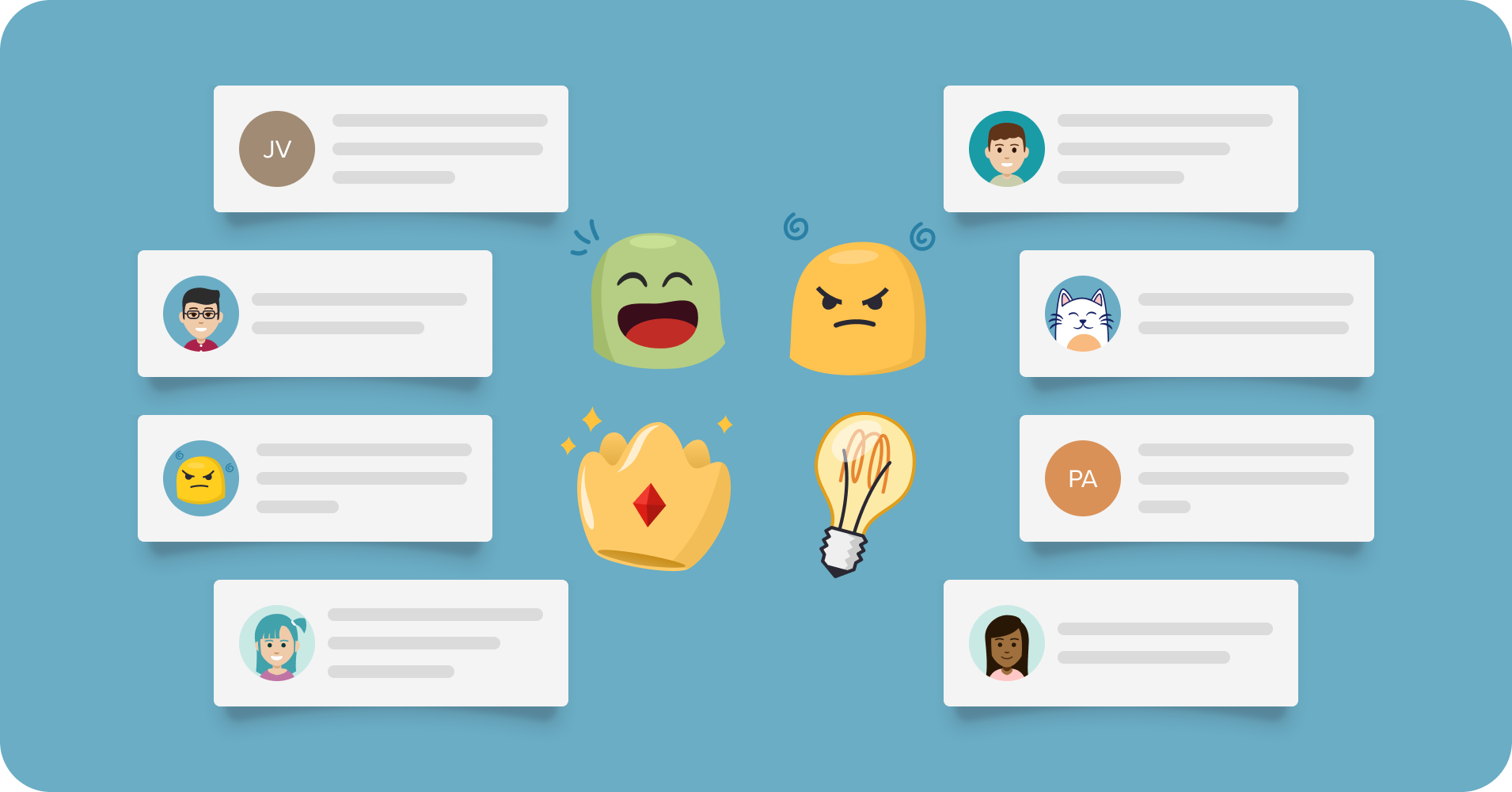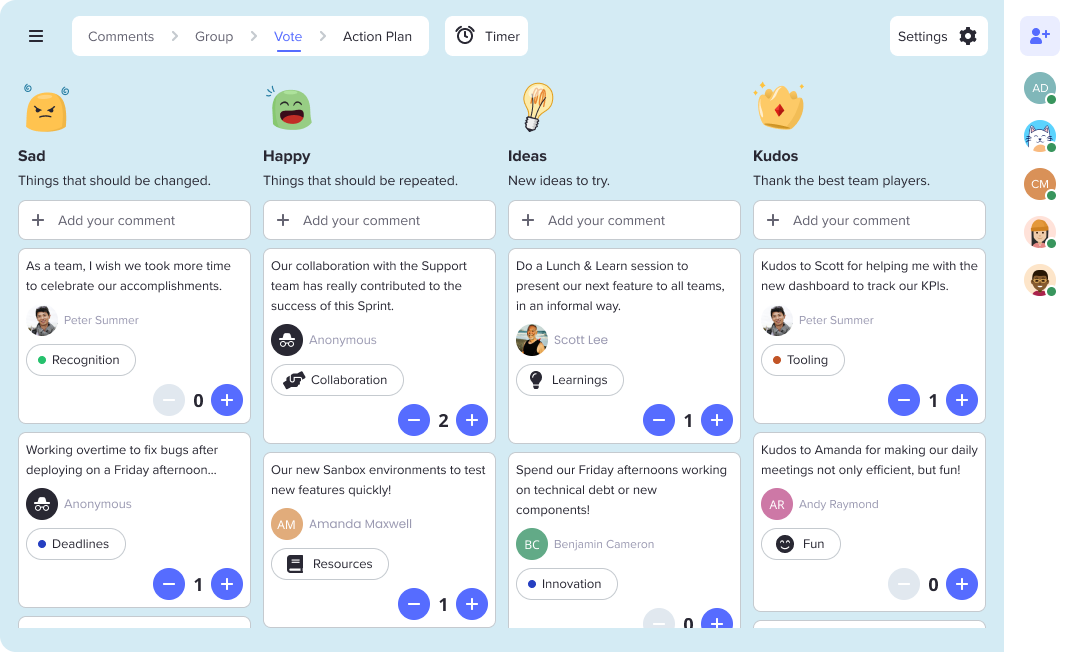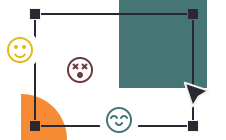The Learning Matrix Retrospective Template

What is the Learning Matrix retrospective template?
The Learning Matrix is a retrospective activity designed to help you identify how everyone feels about the last Sprint or project. Unlike traditional retrospective models, the Learning Matrix will guide your Agile team to discuss processes, behaviors or facts through their feelings.
This model effectively highlights your team's strengths and weaknesses while avoiding pointing fingers at individuals.
Thanks to its Ideas column, each participant can be proactive and creative. Furthermore, this retrospective format increases the feeling of belonging to the team through its Kudos column, which aims to give recognition.
Praised by many Scrum Masters and Agile Coaches, the Learning Matrix is the ideal gateway to introducing a team to the art of Sprint retrospectives, or simply breaking the routine of more conventional retrospectives ☀️

How does The Learning Matrix retrospective format work?
Before starting the Learning Matrix retrospective template, we advise you to take a look back at the retrospective Prime Directive. Since a large part of the activity focuses on the emotional aspect of team members, it is essential to create an environment conducive to psychological safety where everyone will be free to express themselves without being judged.
Now, let’s dig into each section of the Learning Matrix model. Don’t forget to ask team members to share just one idea per comment.

This column aims to help team members question the processes, behaviors, or facts that make them feel 'sad.' If the feeling of sadness may seem too intense, we can look at the things that negatively affected the participants during the last Sprint.
For example:
Fixing so many bugs after each deployment undermines my morale and makes me doubt the quality of the code.
I am often interrupted in my tasks, which causes frustration and anxiety.
Technical debt paralyzes me. The code looks like a giant, unstable Jenga, ready to collapse.

What gave a positive feeling or a sense of accomplishment during the last iteration? It could be how you collaborated with your colleagues, your security practices, the technology stack, your testing processes, or simply your conversations during coffee breaks! List these things and consider what you'd like to see again in the next Sprint.
For example:
I like our group coding sessions. With this sharing, we reached a level of code quality we had never reached before.
Our lunches on Fridays with the other teams.
I enjoyed collaborating with other departments to publish our brand-new Design System.

This section allows participants to share new ideas so that the team can improve. Everything is possible as long as team members respect the following rule: propose ideas that are feasible and within the team's reach.
Here are some ideas to illustrate this section:
Create a squad dedicated to maintaining and updating our new Design System.
Collaborate with the Marketing team to improve our activation rate.
Review our manual testing processes to reduce the number of bugs during deployments.

We all like to receive kind words from our peers, don't we? Still, we also tend to refrain from sharing these praises publicly. With the Kudos column, this is no longer the case. Take the time to give tangible recognition to team members, and you will feel great!
Three examples to better understand this section:
Thanks, Ben; your support and technical assistance during the security audit were a blessing.
Thank you, Olivia, for mapping our processes. This is a precious document that we needed!
Antoine, thank you so much for the donuts on Friday morning. 🍩
The four retrospective questions of the Learning Matrix make it one of the most comprehensive and effective Agile retrospective ideas.
Why is The Learning Matrix retrospective format so effective?
The Learning Matrix model provides everything you need to conduct a productive team retrospective while ensuring a caring environment.
This activity, general and versatile by nature, can be used by any team for any Sprint retrospective or project retrospective (post-mortem).
We highly recommend it to any team wanting to get started with retrospectives simply because this format is easy to understand, even for beginners.
Examples of icebreaker questions for the Learning Matrix retrospective model
Before diving into the retrospective, we recommend a check-in activity or an icebreaker. This will be an opportunity to give all team members a voice and get their full attention.
Do you know The Question Game already? That's the icebreaker feature imagined by Neatro.
Here are some examples from the 400 questions available in the application:
What song have you listened to the most in your life?
What's your zodiac sign? Do you care about it? Why?
What is your favourite sport?
What's a hypothetical gadget you'd invent to make your daily life easier?
What animal would best represent you?
Would you rather live in a Tokyo apartment or a luxury camper van?
What is your best remote work tip?
What's your best tip to stay zen all day long?
Would you rather never age physically or mentally?
Which day would you relive over and over again if you could?
Bonus: Check out our guide to the top 100 icebreaker questions and the "2 Truths and a Lie" icebreaker activity!




